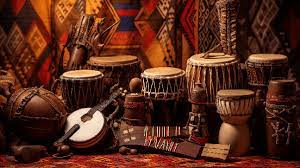
Africa is a continent that boasts of a rich musical diversity. The melodies, rhythms, and instruments used in African music reflect the continent’s vibrant spirit and cultural heritage. From the percussive beats of West African drumming to the soulful melodies of South African jazz, African music encompasses a wide array of styles, genres, and traditions that captivate audiences all over the world.
A defining characteristic of African music is its strong connection to tradition and community. Music has always been an essential part of African societies, serving various purposes such as communication, storytelling, celebration, and spiritual expression. Traditional African music is often characterized by its rhythmic patterns, call-and-response vocals, and a diverse range of percussion instruments such as drums, xylophones, and rattles. These elements combine to create dynamic and energetic compositions that not only captivate listeners but also evoke a sense of unity and collective identity.
The influence of African music has spread far beyond the continent, enriching numerous musical genres across the globe. One of the most notable contributions is the influence of African rhythms on jazz, blues, and other popular music styles. During the transatlantic slave trade, African musical traditions merged with European musical styles, giving rise to new genres like jazz and blues in the Americas. The syncopated rhythms, improvisational techniques, and expressive vocals rooted in African musical heritage became foundational elements of jazz, influencing legendary musicians such as Louis Armstrong, Duke Ellington, and Miles Davis.

African music has had a significant impact on the development of various genres such as rock, funk, and reggae, in addition to jazz and blues. Afrobeat, a genre created by Fela Kuti’s Africa 70, infused traditional African rhythms with elements of jazz, funk, and highlife, and became a powerful platform for social and political commentary in Nigeria and beyond. Similarly, the reggae music of Jamaica, popularized by artists like Bob Marley, drew inspiration from African rhythms and themes of resistance and liberation, reaching audiences worldwide and cementing reggae as a global musical phenomenon.

African music is not only historically and culturally significant but also continues to evolve and innovate in contemporary times. It blends traditional elements with modern influences to create dynamic and diverse sounds that captivate audiences worldwide. The innovative fusion of African rhythms with genres like pop, rock, and electronic music by artists such as Youssou N’Dour from Senegal, Salif Keita from Mali, and Angelique Kidjo from Benin has gained international acclaim. Their music not only celebrates Africa’s cultural heritage but also serves as a bridge that connects different musical traditions and audiences across the globe.
In conclusion, African music is an undeniable testament to the continent’s rich artistic legacy, creativity, and resilience. From its traditional roots to its global impact, African music embodies a spirit of unity, diversity, and creativity that continues to inspire and captivate audiences worldwide. Whether it’s the infectious rhythms of West African percussion, the soul-stirring melodies of South African gospel, or the innovative sounds of contemporary African artists, African music remains a vibrant and essential part of the global musical landscape. It enriches hearts and minds with its timeless beauty and power.



